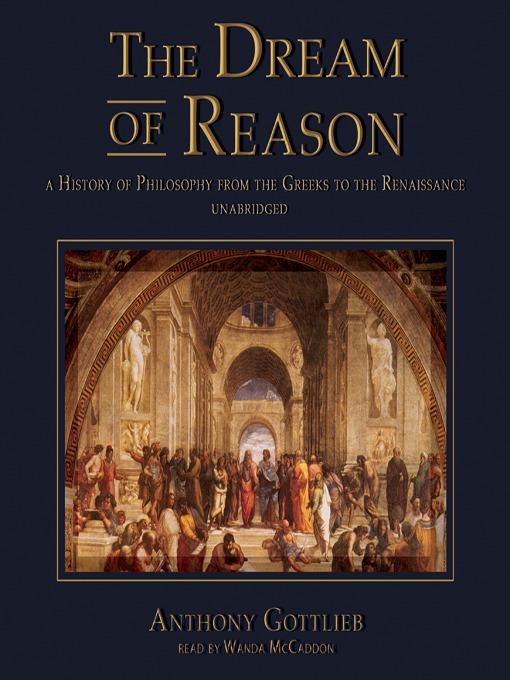
The Dream of Reason
A History of Philosphy from the Greeks to the Renaissance
کتاب های مرتبط
- اطلاعات
- نقد و بررسی
- دیدگاه کاربران
نقد و بررسی

Philosophy, as we know it in the West, began with the Greeks, when people first applied reason to the baffling world of phenomena that surrounded them. For that reason, it is all too often, as the title ironically suggests, a mere "dream." Creatures as irrational as we are can't rely exclusively on our reason, after all. Nadia May's reading of this refreshing history is tuned to Gottlieb's delicate irony as he traces his history from the pre-Socratics to Descartes, though better than three-quarters of the book focuses on the Greeks, especially the pre-Socratics and Gottlieb's beloved Aristotle. (Medieval and Renaissance thinkers are merely a footnote to Aristotle, one would suppose.) Nevertheless, Gottlieb's strength is really storytelling, not philosophy, and the cultural context of his stories. May's reading catches his narrative excitement. She is at once glib, catchy, erudite, but above all entertaining. Stay tuned for Gottlieb's take on the Moderns, which promises to be equally entertaining. P.E.F. (c) AudioFile 2003, Portland, Maine

December 4, 2000
Histories of philosophy tend either to be prodigious, learned works, like F.C. Copleston's A History of Philosophy, or idiosyncratic tracts of scholarly obfuscation, like Bertrand Russell's A History of Western Philosophy, and they often present their subject through narrow, ideological lenses. Gottlieb's elegant survey brings a breath of fresh air. Executive editor of The Economist, Gottlieb mines primary sources with a remarkably even hand. He demonstrates that, while cosmological questions dominated early philosophy, Plato and Aristotle investigated metaphysical, epistemological and ethical conundrums as well. He shows how the later Hellenistic schools, like the Epicureans and Stoics; medieval thinkers, such as Augustine and Aquinas; and Renaissance philosophers like Machiavelli and Bacon built their systems either on Plato or Aristotle. But Gottlieb's book is not just another plodding survey. His attention to cultural context provides insight into why various thinkers thought as they did about certain matters. Plato wrote his Republic, for example, because he detested the kind of democracy in fashion in Athens, and he wanted to return to the oligarchy of his childhood. Unfortunately, the book suffers from a distorted perspective, covering almost 1,000 years of history, from late antiquity to the Renaissance, in just under 100 pages, while giving more than that to early Greek philosophy, most of which consists of fragmentary sources. Thus, Hobbes and Machiavelli who, more than Democritus or Empedocles, deserve their own chapters are allotted only a few brief paragraphs. Gottlieb also engages in some misreading: Kant's theory of self-consciousness, for instance, leads not to relativism but to absolutism. Nonetheless, this eloquent book offers a lively chronicle of the evolution of Western philosophy. (Dec.) Forecast: This excellent volume will find a place in course curricula, and it will appeal to those who, no longer students, wish they had taken Philosophy 101, as well as those who did, and would like a refresher course.

























دیدگاه کاربران